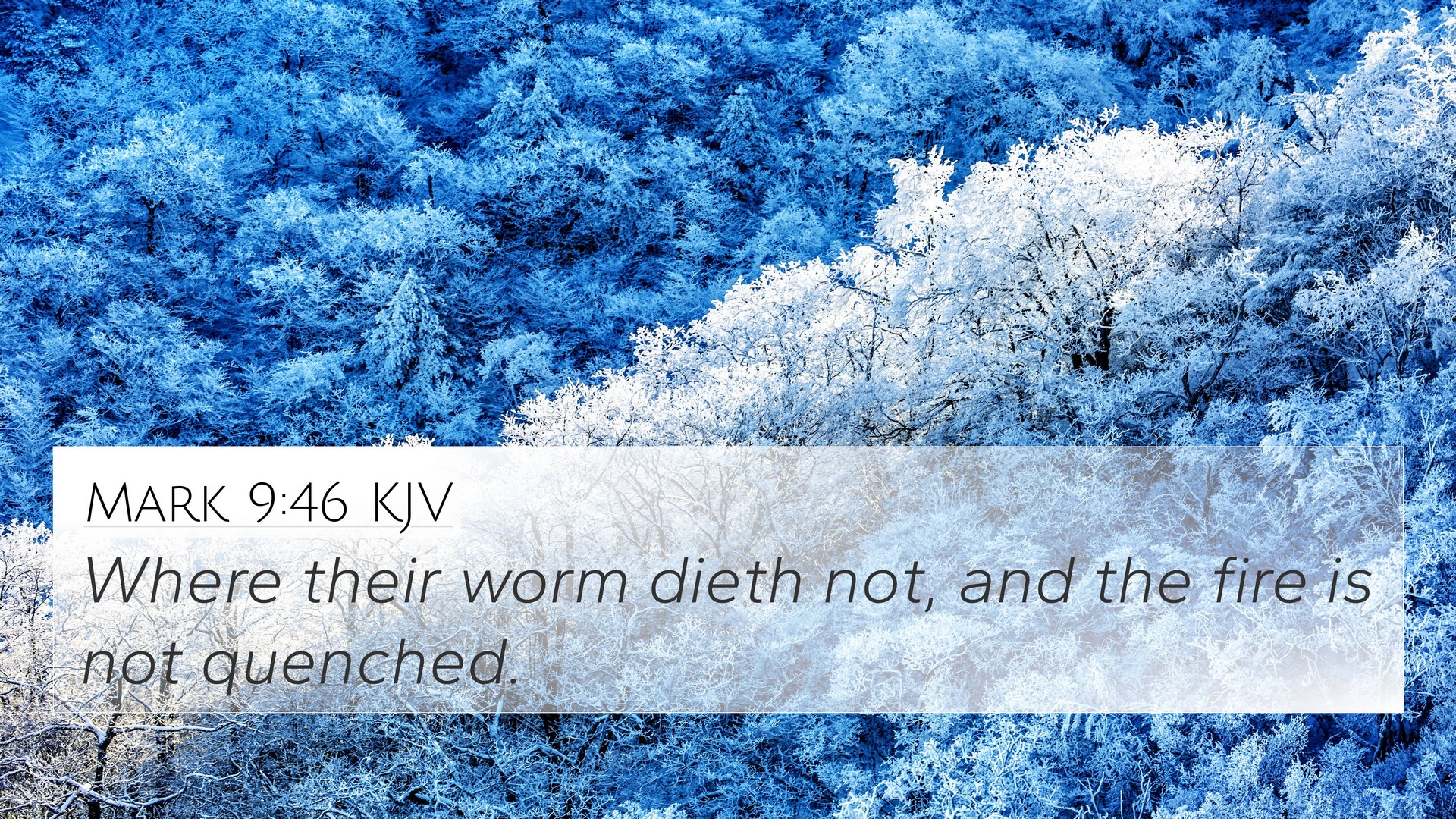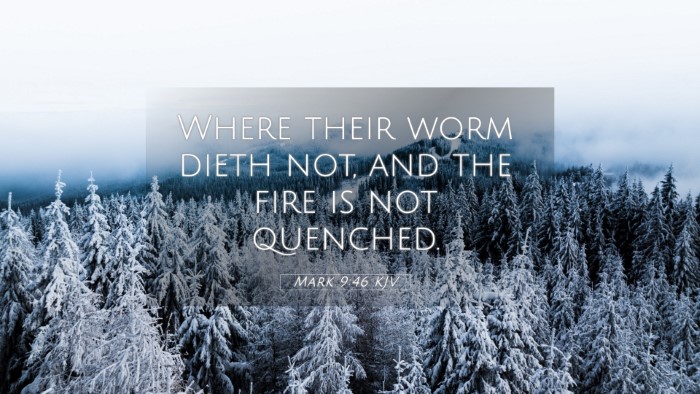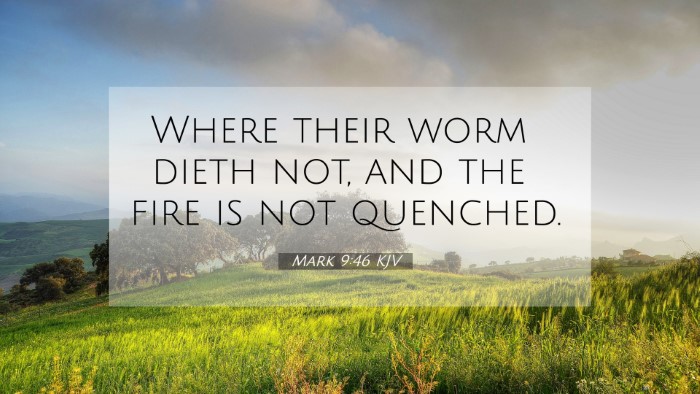Understanding Mark 9:46
Mark 9:46 states, "Where their worm dieth not, and the fire is not quenched." This verse is part of Jesus' teaching on the seriousness of sin and the consequences of rejecting God. It highlights the eternal nature of punishment for those who choose to live apart from God and emphasizes the importance of righteousness.
Verse Meaning and Context
This verse occurs in a passage where Jesus warns His disciples about the dangers of sin and the necessity of radical measures to avoid it. The imagery used reflects the ancient concept of unquenchable fire and eternal decay.
Insights from Public Domain Commentaries
- Matthew Henry: Henry emphasizes the significance of Jesus’ warning against the eternal consequences of sin, suggesting that the eternal punishment represents the unending suffering of the lost. He stresses the need for believers to take sin seriously and to make sacrifices to avoid it.
- Albert Barnes: Barnes characterizes the reference to “worm” and “fire” as symbols of the torment that awaits those who die in their unrepentant state. He draws connections to concepts found in other scriptures, reinforcing that the imagery serves as a warning of hell's consequences.
- Adam Clarke: Clarke reflects on the Jewish background of the imagery, explicating how the phrases relate to the understanding of punishment in the afterlife during Jesus’ time. He asserts that the punishment is not just physical but also spiritual, showcasing the dishonor of being separated from God.
Bible Verse Cross-References
Mark 9:46 resonates with several other scriptures, illustrating a broader theological context.
- Isaiah 66:24: "And they shall go forth, and look upon the carcases of the men that have transgressed against me: for their worm shall not die, neither shall their fire be quenched."
- Revelation 20:10: "And the devil that deceived them was cast into the lake of fire and brimstone..." – aligning the eternal torment with the fate of the wicked.
- Matthew 25:41: "Then shall he say also unto them on the left hand, Depart from me, ye cursed, into everlasting fire, prepared for the devil and his angels."
- 2 Thessalonians 1:9: "...who shall be punished with everlasting destruction from the presence of the Lord..." – emphasizing the separation from God as a form of punishment.
- Mark 9:43: "And if thy hand offend thee, cut it off..." – preceding verse emphasizes taking drastic actions against sin.
- Lamentations 3:19-20: "Remembering mine affliction..." – reflects on eternal suffering and remembrance of judgment.
- Jude 1:7: "...Sodom and Gomorrha, and the cities about them... suffering the vengeance of eternal fire."
Thematic Connections
The themes of judgment, sin, and the eternal separation from God are prevalent in the Bible. Analyzing Mark 9:46 in conjunction with other verses reveals the common thread of the necessity for holiness and the dire consequences of neglecting spiritual integrity.
Cross-Referencing Biblical Texts
By understanding the connections between these verses, one can develop a comprehensive view of Biblical teachings on hell and judgment. Tools for Bible cross-referencing, such as a Bible concordance or cross-reference guide, can aid in this study.
Further Study and Reflection
As readers engage with Mark 9:46, they should reflect on the implications of the verse for their lives. What measures are we taking to avoid sin? How does this teaching inform our understanding of God's justice and mercy?
Conclusion
Mark 9:46 serves as a sobering reminder of the eternal reality of judgment. By cross-referencing other scriptures, we can deepen our understanding and cultivate a holistic view of doctrine regarding sin and its consequences.


